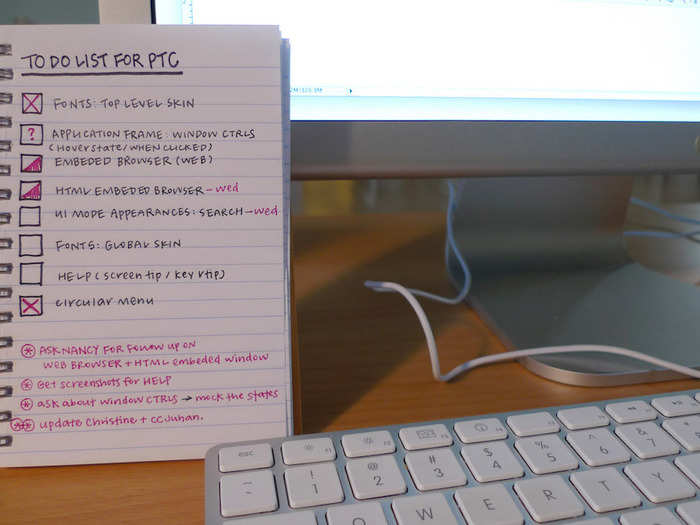- Home
- slideshows
- miscellaneous
- The 7 smartest things I did before starting my job
The 7 smartest things I did before starting my job
1. Know your industry

2. Know your company

You'd never use a new power tool without reading the directions first. The same goes for starting a new job.
Aside from basic conduct rules and the vacation policy, there are procedures and penalties in the company manual that you need to understand. About halfway through my company handbook, I uncovered a travel bonus triggered after a few years at the agency.
If you can, try to find an employee list with photos or look up your company on LinkedIn before you start. My new colleagues were flattered by the fact that the new team member already knew who they were.
3. Get some new threads

"Dress to impress" is a classic job tip, and for for good reason: Sharp, well-fitting clothes can make you look and feel more professional.
My new office is decidedly more casual than my former talent agency, which meant I had to update my button-down and slacks game and put my suits aside.
You don't need to blow a ton of money on a new wardrobe. But my crisp, never-worn dress shirt and slacks gave me a boost of confidence that set the tone from day one.
4. Give yourself some transition time

If possible, avoid leaving one job on Friday and starting a new one on Monday. You should take at least a week to clear your head.
Even if you're staying in the same industry, your reality is changing — corporate identities are as distinct as individual personalities. For example, you may be leaving a company that emphasizes individual achievement and responsibility for one that focuses on teamwork and cooperation.
After I left my last job, I took a three-day camping trip and binged on Netflix. By the time I started my new job, I was more energized than I'd been in a long time.
5. Polish off your to-do list

If you have any errands you've been meaning to tackle, try to get them done before you start your new job. You may be putting in a few more hours than usual as you try to get up to speed at the new gig.
I got my oil changed, organized my home office, scheduled an appointment with the DirecTV guy, and even did my taxes — in February. That way, I was able to spend evenings reviewing the new system and clients I'd be working with, because I had no personal tasks hanging over my head.
6. Write up your game plan

Remember during your interview when you shared all those brilliant ideas for how you'd help grow the business, streamline their operations, and develop new projects? Now is the time to do it. Write up a detailed game plan before your first day.
Before I started my job, I made a list of every potential client I could think of. Once I knew how the company worked, I began working through the list one person at a time. Worst case, I learned what systems our competitors used. Best case, I brought in new clients.
7. Thank everybody

You want to tell the people who just hired you how excited you are to join the team, but you also want to thank your colleagues from your former company so you can set the tone for maintaining those relationships.
I also started off my new job by reaching out to and thanking the people from my past. In a few cases, I discovered we could still work together in a new way. The more bridges you build, the further you'll go.
Popular Right Now
Popular Keywords
Advertisement